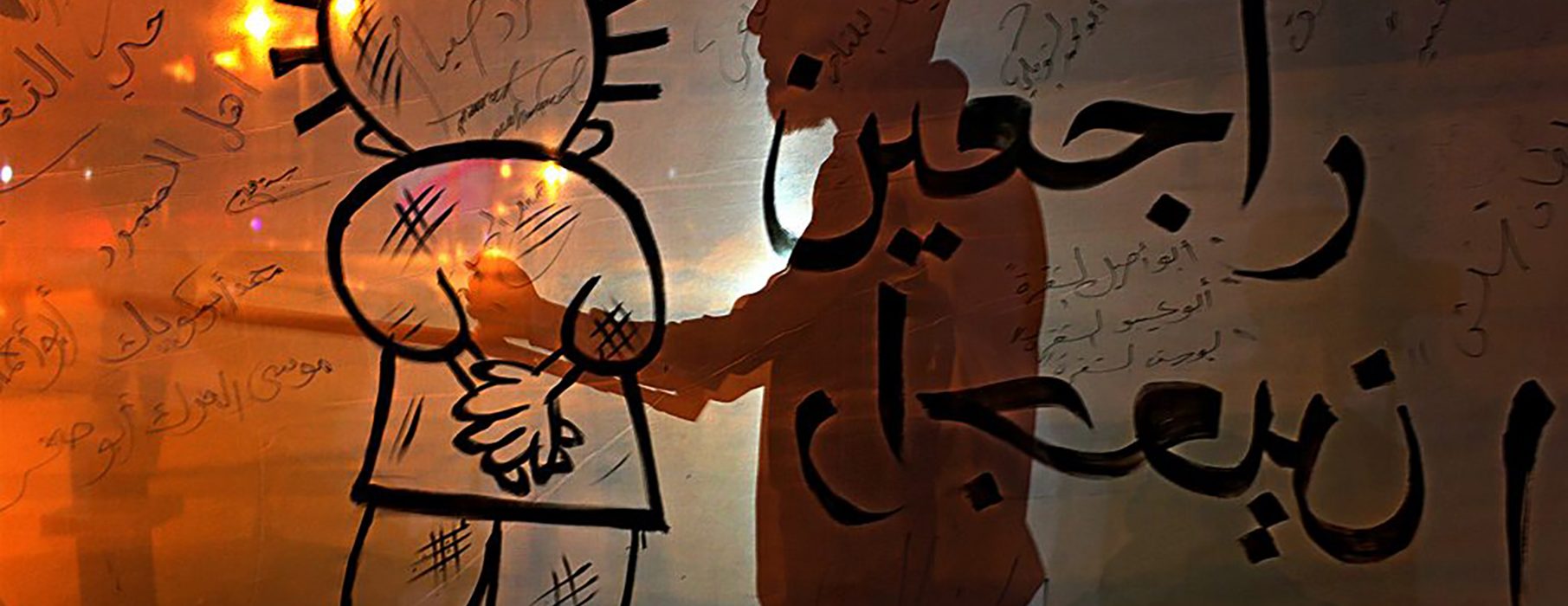June 20, 2018 // World News
Gaza students in Catholic-run school defy daily challenges
JERUSALEM (CNS) — Messelem Abu Mutlak, a 15-year-old student at the Rosary Sisters School in Gaza, fantasizes about being a champion goalkeeper and when he is not studying, he dedicates himself to improve his soccer skills.
Abu Mutlak’s real dream though, is to study computer science at Massachusetts Institute of Technology in Boston.
However, the reality of his life as a young man living in Gaza is that no matter how much effort he puts into his studies and getting good grades, he has about as much chance of going to MIT as he does of becoming a star goalkeeper.
“I have maybe a 1 percent chance of going there,” Abu Mutlak told Catholic News Service in a telephone interview after completing the last of his final exams for the year. “I really want to get there. I want to study. I know MIT is the best college teaching computer programming.”
His friend Mahmoud Abu Smara, 15, also wants to study computer science in the United States, although he is not set on any one college yet.
“I think I did well on my exams,” Abu Smara said. “My parents want me to study in the USA to better myself. And I want to do something in my future so that I can help the world and my people. But it is hard to study here in Gaza. I am not able to focus all the time.”
To keep focused so as not to fall into despair, Abu Smara started training two years ago for triathlon competitions, which are held once a year in Gaza. This year he finished in the top 10, he said.
Much of his motivation and focus on positive goals despite rampant difficulties and dangers of living in Gaza has come from the education he has received at the Rosary Sisters School.
“They teach me about life and how to have a positive outlook, not just book learning,” he explained. “They help me to think things through and realize that not everything that happens to you in life is negative. They help us to think positive and be happy in your life.”
On March 30, Palestinians began the Great March of Return, a six-week campaign that included protests demanding to be allowed to return to their homeland in what is now Israel. More than 110 people were killed and thousands injured in the ensuing demonstrations, mainly along the Gaza border as Israeli forces responded with gunfire and tear gas.
Israel maintains that the ruling Hamas party has used the demonstrators for its own political purposes, with its members trying to breach the border fence into Israel.
Gaza has been under an Israeli and Egyptian blockade for more than a decade since Hamas was voted into government. Both countries control the exit routes of the besieged 139-square-mile strip of land sandwiched between them, where about 1,000 Christians live amongst a majority Muslim population of 1.8 million.
Tensions remained high in Gaza. Three demonstrators were reported killed and hundreds injured along the border on the last Friday of Ramadan, June 8, as Israeli soldiers fired tear gas and live rounds at protestors who threw grenades, other improvised explosives and rocks at the soldiers and burned tires.
Though it can be “devastating” to hear about the situation along the border, the Rosary School students interviewed — all Muslims, as are the majority of the students at the school — said it was clear to them they can help the Palestinian cause by getting an education and contributing to society in the future.
“You can’t really focus … when I know some people are getting killed on the border but I don’t go to demonstrations. I don’t want to go and my parents don’t want me to go. I can give more to my society alive than dead, though I can’t be sure of what my future will be. If the border is not open, where can I go?” said Jaafar Abu Cumboz, 15, who wants to be a surgeon.
Of course, it is difficult to maintain hope in Gaza, acknowledged Yassen Alakhras, 16, but he knows he is a good student. He wants to study medicine, probably in Gaza, he said.
“People ask me how I can remain positive, but I will live my life,” Alakhras said.
School principal Sister Nabila Saleh, originally from Egypt, said that in addition to providing a strong academic curriculum, the school dedicates itself to imparting students their own importance and value as members of society.
It has not been easy on the students studying for their final exams, she said. Along with the political tensions, young people have had to contend with a troubling aspect of daily life: only four hours of electricity a day. The students study for final exams by using rechargeable battery-powered lights. Still, it is better than a few years ago when they could study only by candlelight.
“In our school, we try to give our students capacity building for their lives, not just for their studies,” Sister Saleh said. “We try to help them learn how to work in their difficult situation. We teach them English, French. We give them music class. We teach them that they are important. We try to keep them away from the violence.”
For the young people, it has made all the difference.
“Two years ago, I was just playing games, I didn’t study. I stayed at home all the time playing games,” Abu Mutlak said. “But now I want to go out and give what I can of myself. Especially in the last year, I have completely changed my personality and hope to better myself and have a better life.”
The best news. Delivered to your inbox.
Subscribe to our mailing list today.






